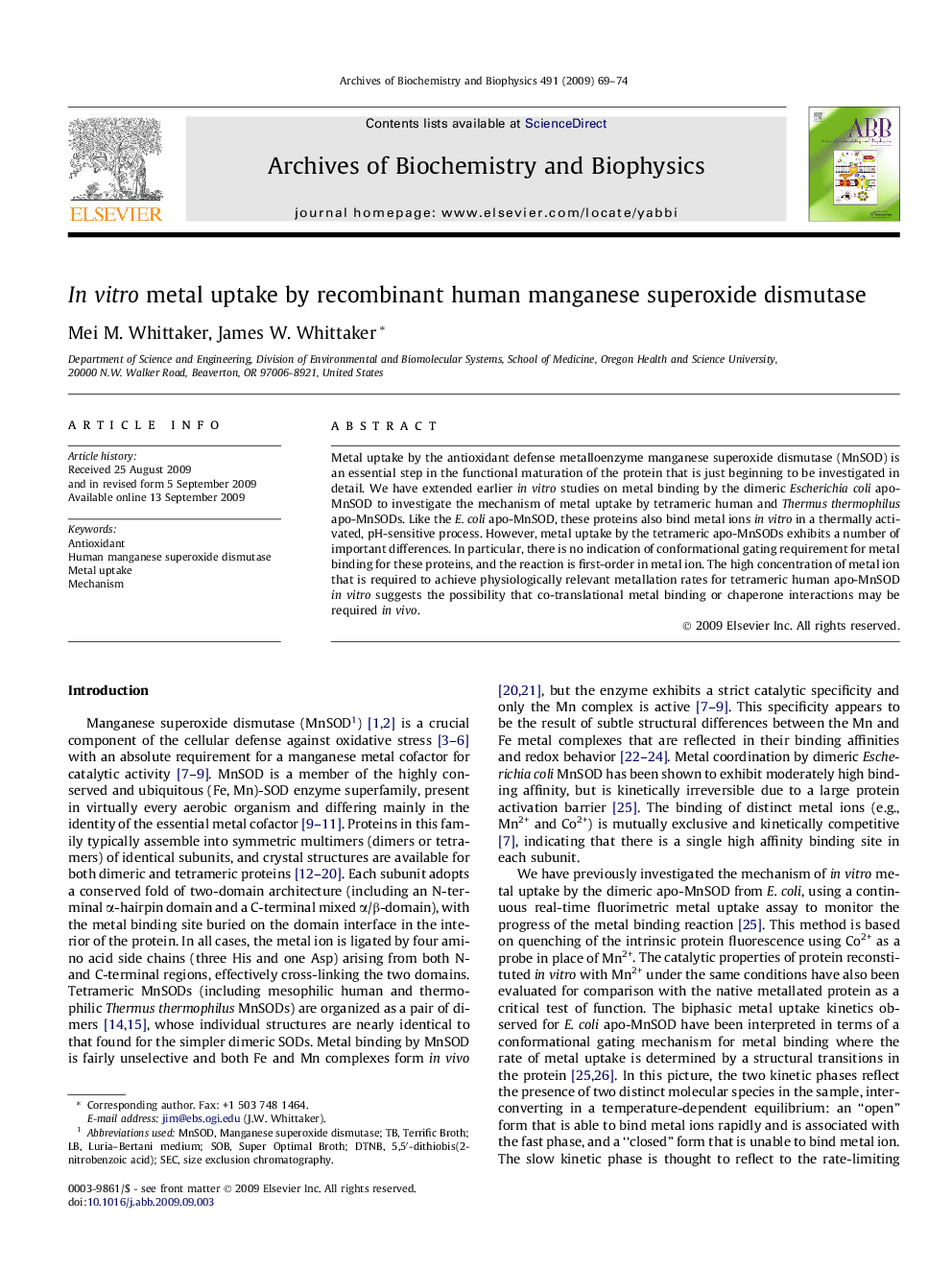| Article ID | Journal | Published Year | Pages | File Type |
|---|---|---|---|---|
| 1926254 | Archives of Biochemistry and Biophysics | 2009 | 6 Pages |
Metal uptake by the antioxidant defense metalloenzyme manganese superoxide dismutase (MnSOD) is an essential step in the functional maturation of the protein that is just beginning to be investigated in detail. We have extended earlier in vitro studies on metal binding by the dimeric Escherichia coli apo-MnSOD to investigate the mechanism of metal uptake by tetrameric human and Thermus thermophilus apo-MnSODs. Like the E. coli apo-MnSOD, these proteins also bind metal ions in vitro in a thermally activated, pH-sensitive process. However, metal uptake by the tetrameric apo-MnSODs exhibits a number of important differences. In particular, there is no indication of conformational gating requirement for metal binding for these proteins, and the reaction is first-order in metal ion. The high concentration of metal ion that is required to achieve physiologically relevant metallation rates for tetrameric human apo-MnSOD in vitro suggests the possibility that co-translational metal binding or chaperone interactions may be required in vivo.
